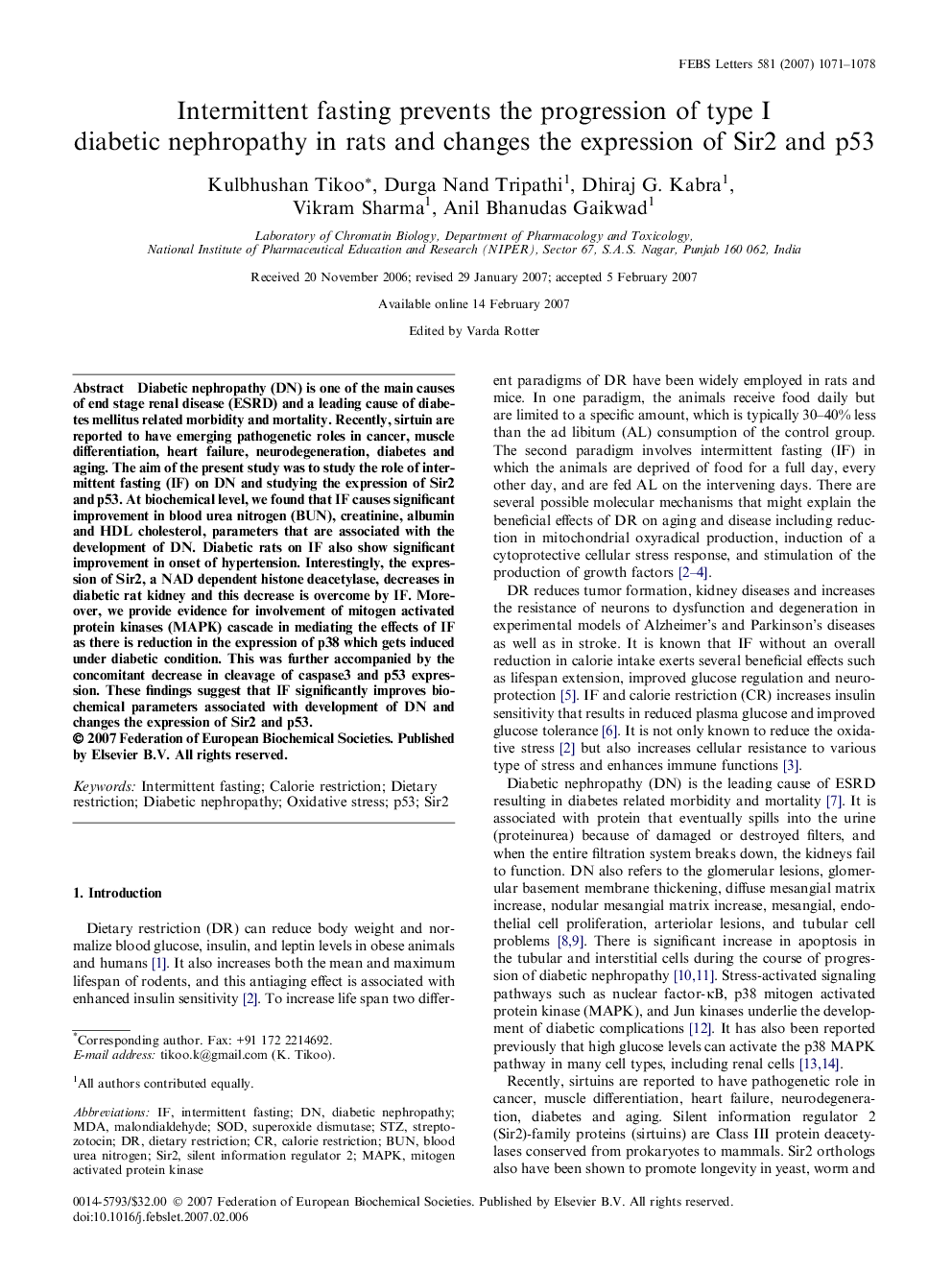| Article ID | Journal | Published Year | Pages | File Type |
|---|---|---|---|---|
| 2051302 | FEBS Letters | 2007 | 8 Pages |
Diabetic nephropathy (DN) is one of the main causes of end stage renal disease (ESRD) and a leading cause of diabetes mellitus related morbidity and mortality. Recently, sirtuin are reported to have emerging pathogenetic roles in cancer, muscle differentiation, heart failure, neurodegeneration, diabetes and aging. The aim of the present study was to study the role of intermittent fasting (IF) on DN and studying the expression of Sir2 and p53. At biochemical level, we found that IF causes significant improvement in blood urea nitrogen (BUN), creatinine, albumin and HDL cholesterol, parameters that are associated with the development of DN. Diabetic rats on IF also show significant improvement in onset of hypertension. Interestingly, the expression of Sir2, a NAD dependent histone deacetylase, decreases in diabetic rat kidney and this decrease is overcome by IF. Moreover, we provide evidence for involvement of mitogen activated protein kinases (MAPK) cascade in mediating the effects of IF as there is reduction in the expression of p38 which gets induced under diabetic condition. This was further accompanied by the concomitant decrease in cleavage of caspase3 and p53 expression. These findings suggest that IF significantly improves biochemical parameters associated with development of DN and changes the expression of Sir2 and p53.
